Are you facing interpersonal conflicts at work and considering resigning? It can be a challenging and emotional decision, but it's essential to handle it thoughtfully. In this article, we'll explore how to respectfully and professionally resign while addressing the underlying issues that led to your decision. Stick around to learn more about crafting the perfect resignation letter that reflects your experience.

Professional tone and language
Resigning from a position due to interpersonal conflicts can be a difficult decision. The impact of sustained tension can lead to decreased job satisfaction and overall well-being. An employee navigating such a decision should consider how the work culture in an organization has influenced their productivity. Additionally, unresolved conflicts can not only affect the individual but also create a ripple effect that influences team dynamics, morale, and collaboration. Providing notice can help maintain professionalism; a two-week notice is typically standard practice. When crafting a resignation, maintaining a respectful and professional tone is crucial, despite the underlying reasons for leaving. This approach preserves future references and reputation within the industry.
Clear statement of resignation
Interpersonal conflicts can create a challenging work environment, potentially impacting job satisfaction and performance. Resignation from a position at a company, such as XYZ Corporation, may become necessary when these conflicts hinder collaboration and productivity. Employees experiencing ongoing disputes, such as those involving team dynamics, communication breakdowns, or managerial disagreements, may find that their mental well-being is affected in workplaces with high-stress levels. Establishing boundaries and recognizing when to move on can lead to healthier workplace experiences in the future. Transitioning from a position may provide opportunities for personal and professional growth in a more harmonious setting.
Brief explanation of interpersonal conflicts
Interpersonal conflicts in the workplace often arise from differences in communication styles, work ethics, or personal values among team members. These conflicts can lead to misunderstandings, frustration, and a toxic work environment, negatively impacting employee morale and productivity. When unresolved, such tensions may cause feelings of isolation or dissatisfaction, prompting individuals to seek a more harmonious work setting. Ultimately, these conflicts can diminish collaboration and strain professional relationships, which may necessitate a resignation for personal well-being and career growth.
Gratitude for opportunities given
Interpersonal conflicts can greatly hinder workplace productivity and job satisfaction. In high-stress environments, such as corporate offices or healthcare facilities, misunderstandings between colleagues can escalate, impacting team dynamics. Difficulties in communication often result in unresolved tensions, leading to decreased morale and ultimately contributing to employee turnover. Despite these challenges, it is important to acknowledge the positive experiences gained during employment. Gratitude for opportunities, such as professional development programs or mentorship sessions, can provide valuable lessons and networks that will be beneficial in future endeavors. Addressing conflicts respectfully while expressing thanks for growth can leave a lasting impression, paving the way for constructive relationships in the future.
Offer to assist with transition
Interpersonal conflicts in the workplace can create a challenging environment for employees. Navigating these conflicts often leads to decreased job satisfaction and productivity. Workplace dynamics (such as team interactions and individual behaviors) can significantly affect morale and collaboration. Offering to assist with transition tasks (like training a replacement or completing outstanding projects) can facilitate a smoother handover process. This gesture not only demonstrates professionalism but also helps maintain positive relationships with colleagues. Acknowledging contributions from coworkers (through verbal or written appreciation) may also contribute to a more amicable departure.
Letter Template For Resigning Due To Interpersonal Conflicts Samples
Letter template of resignation resulting from conflict resolution challenges.
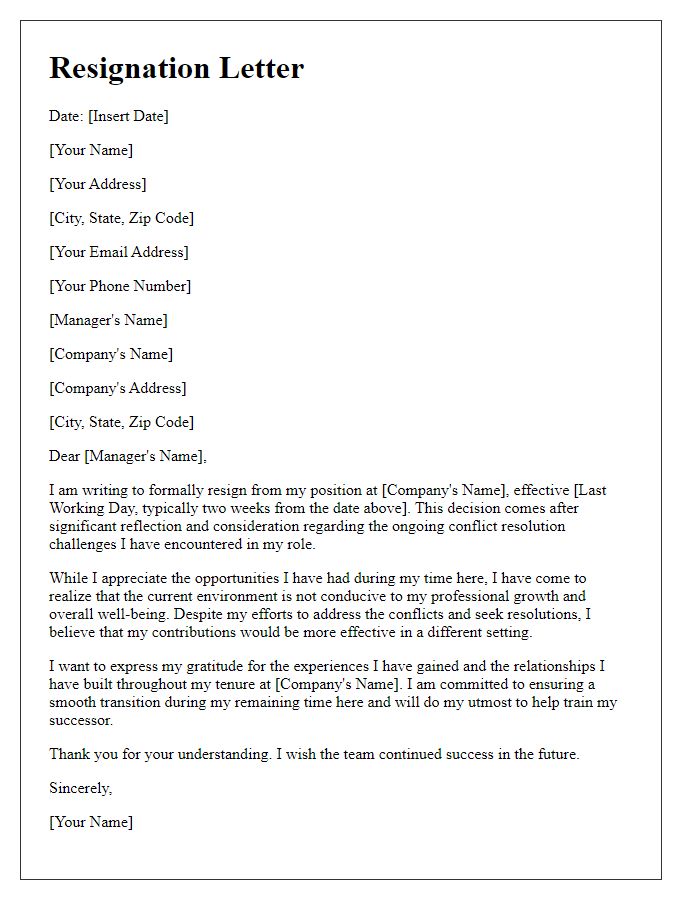

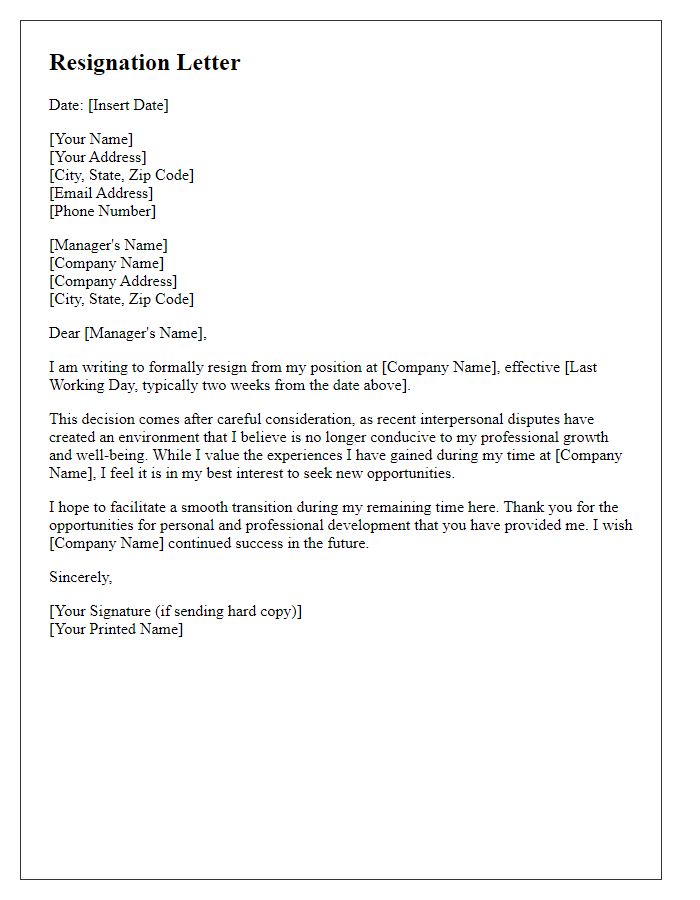
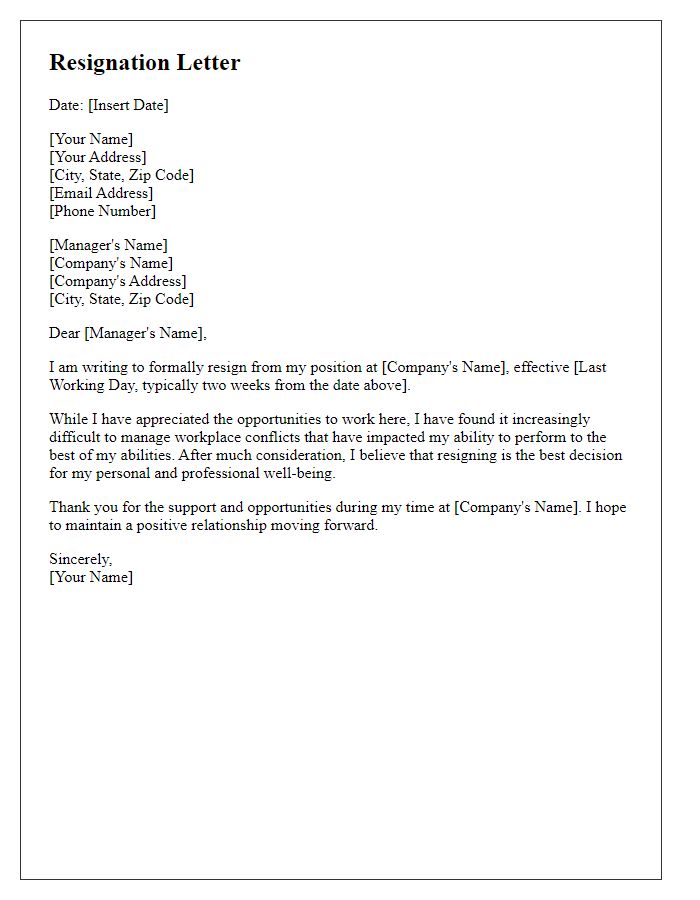
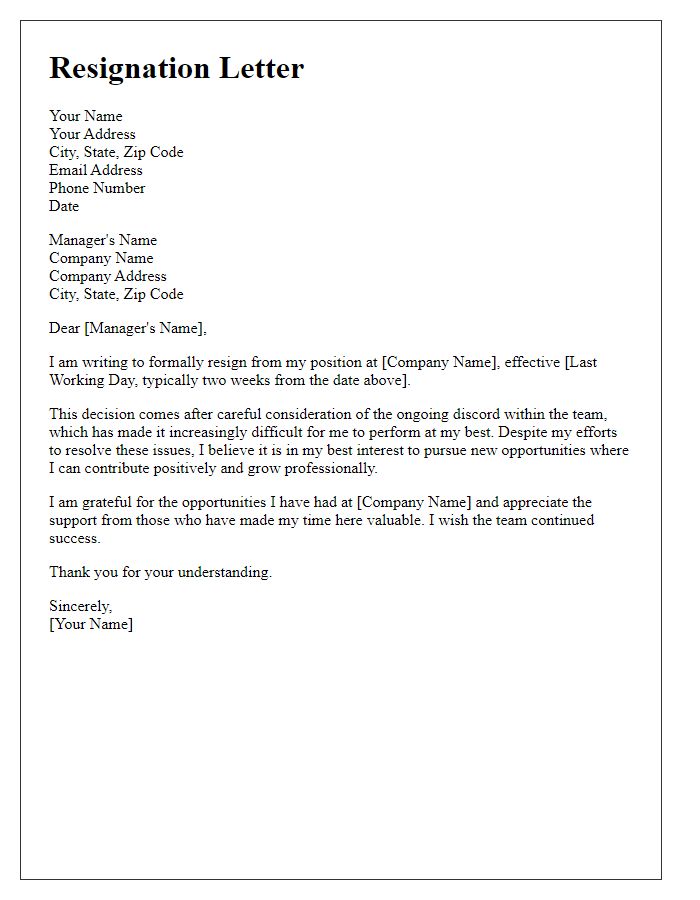
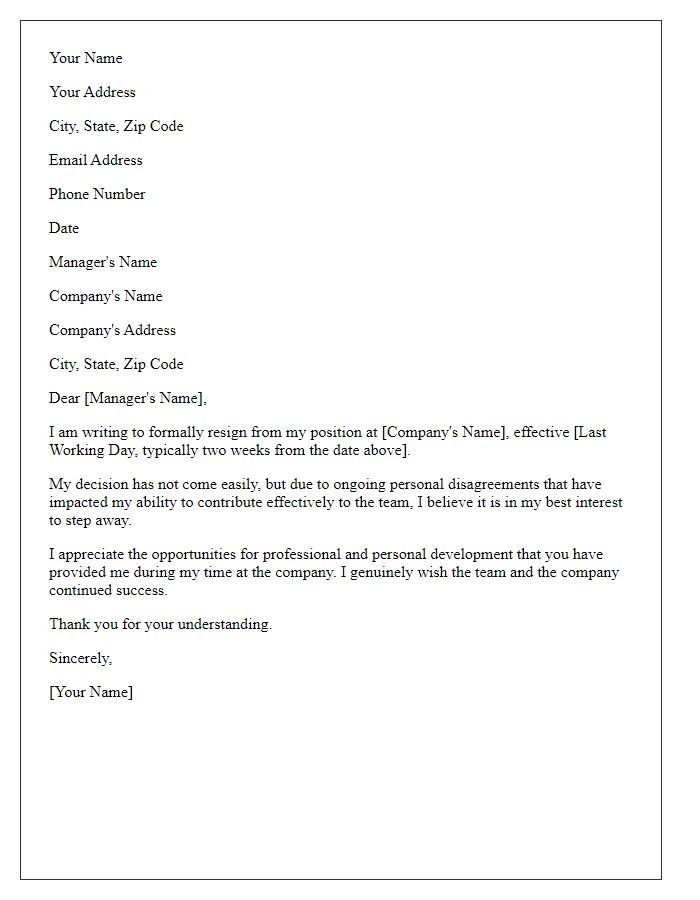
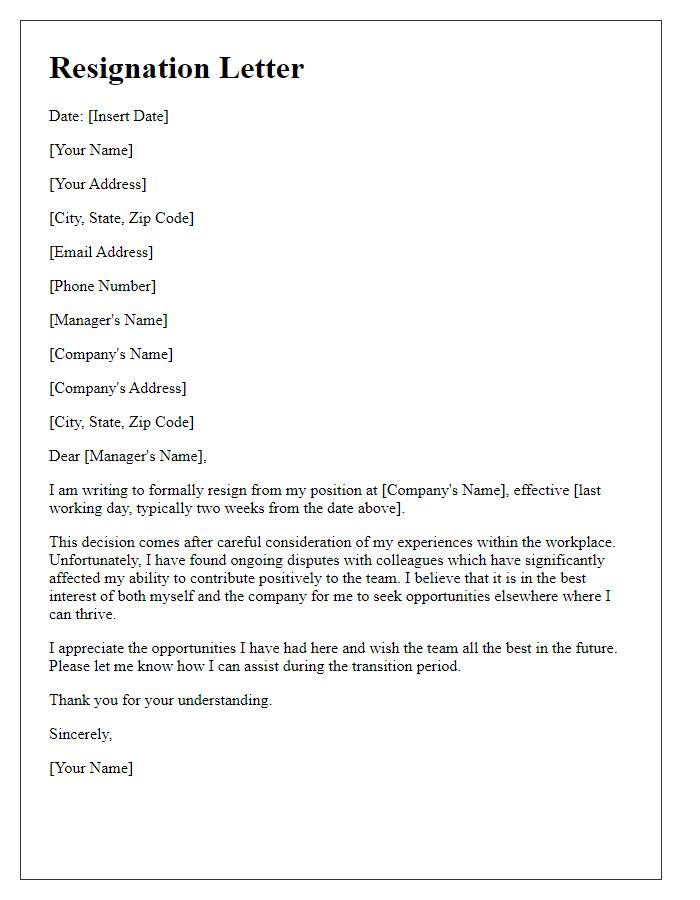
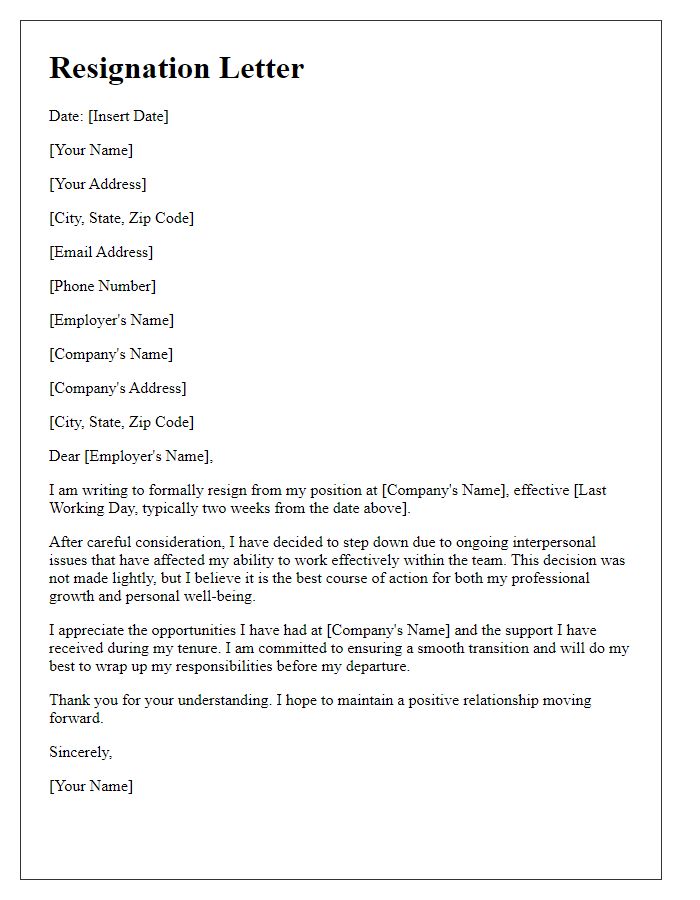
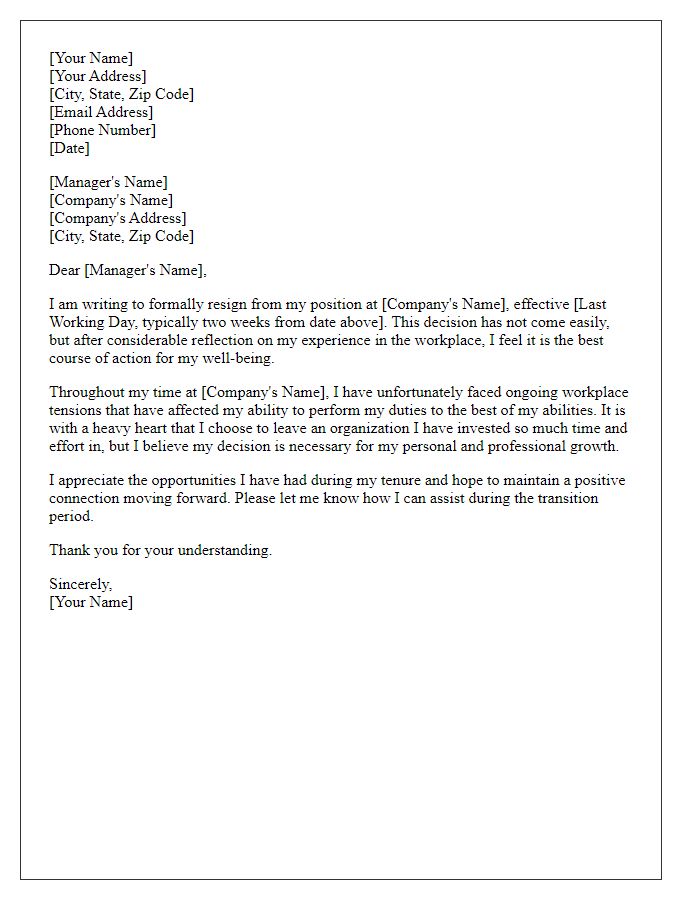
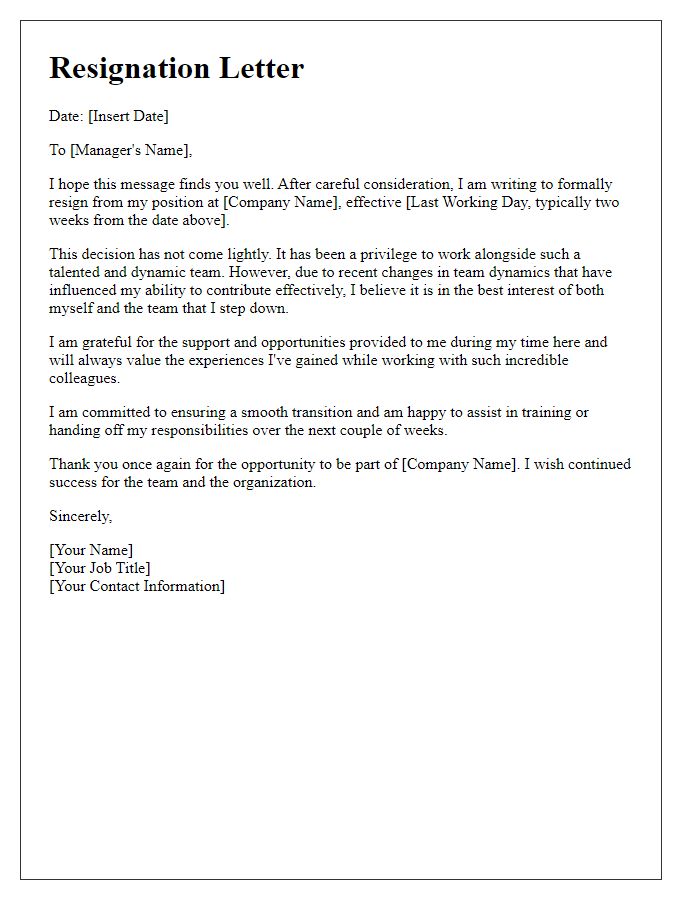
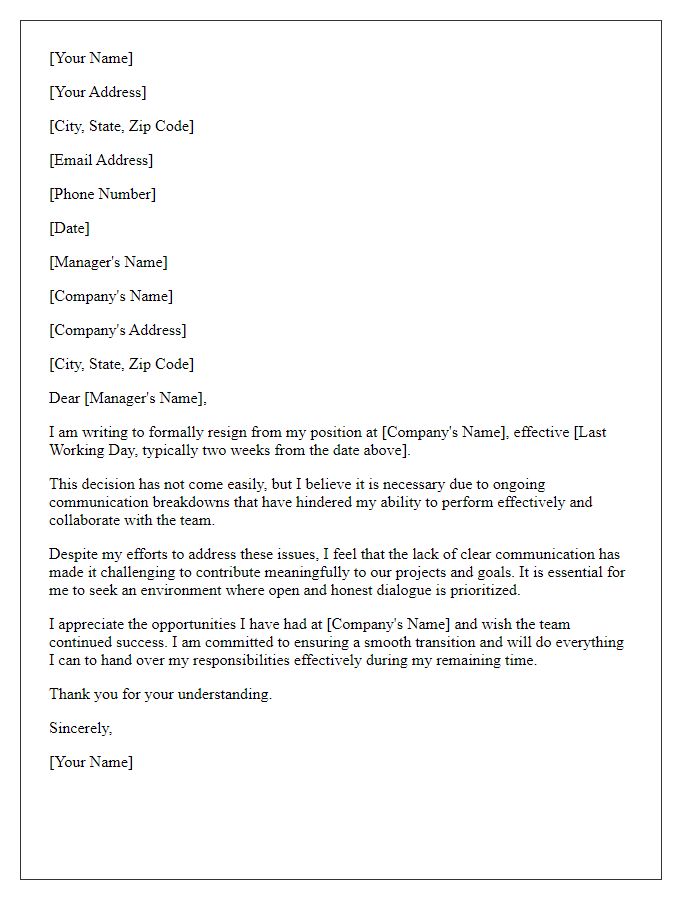


Comments